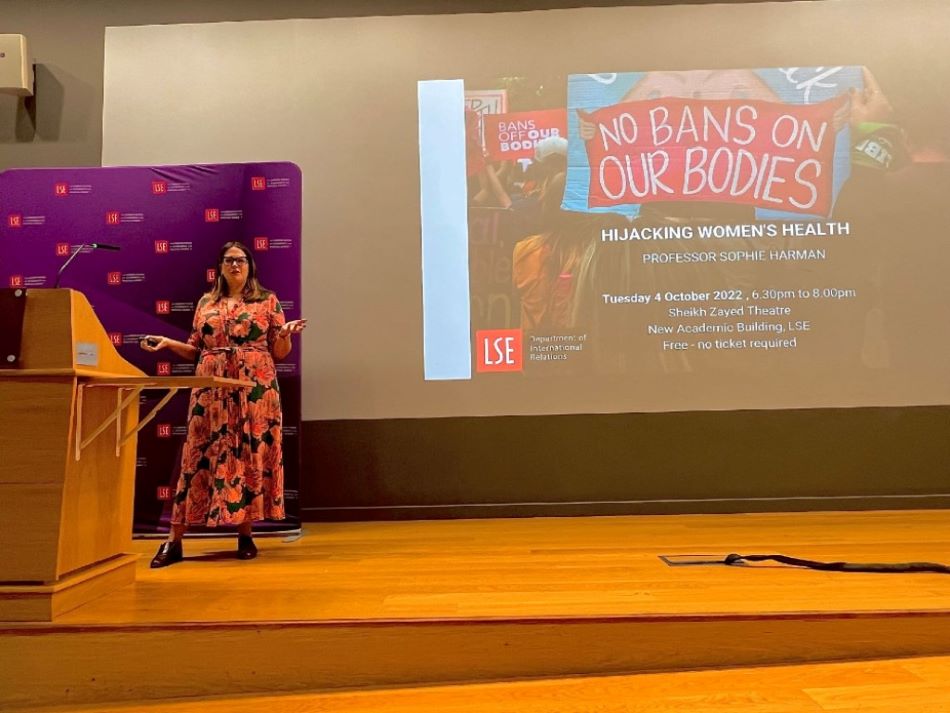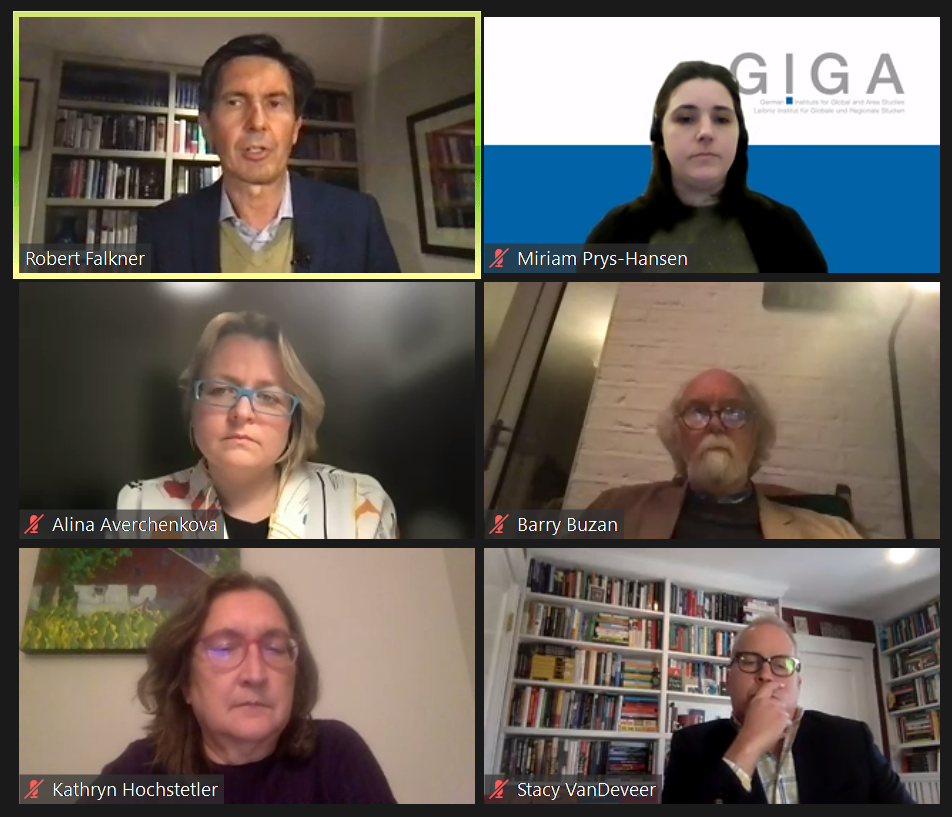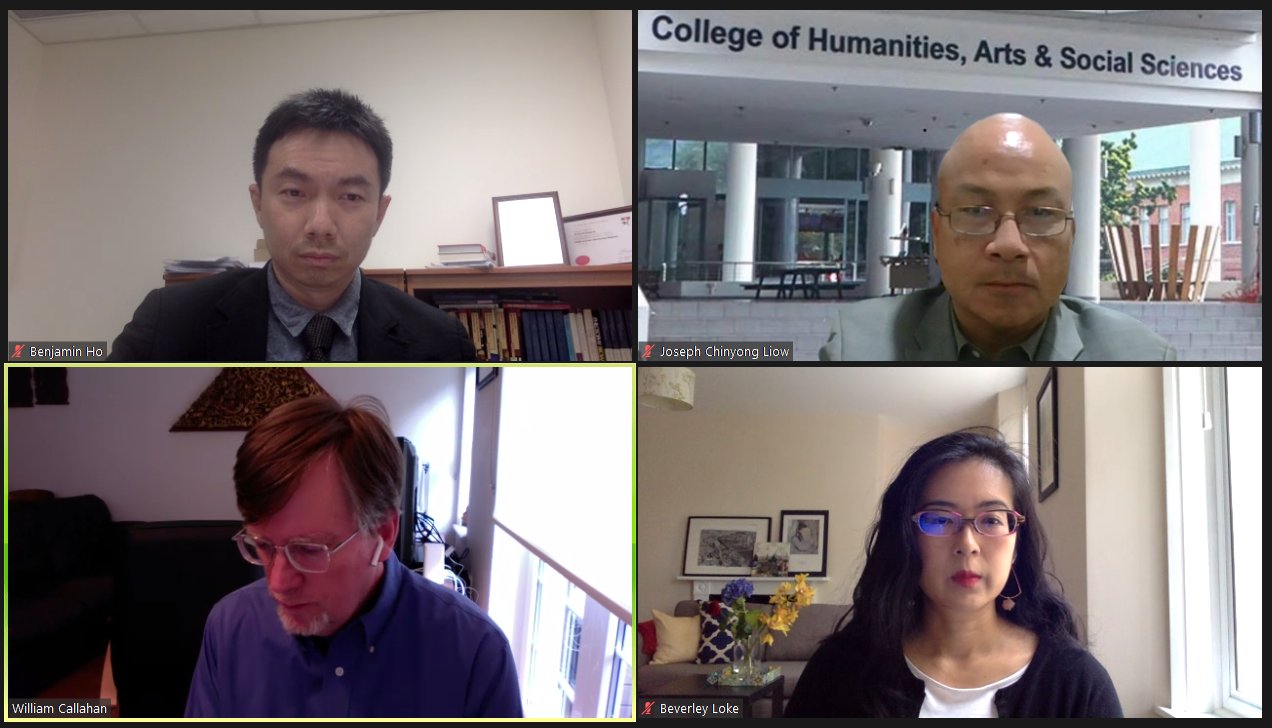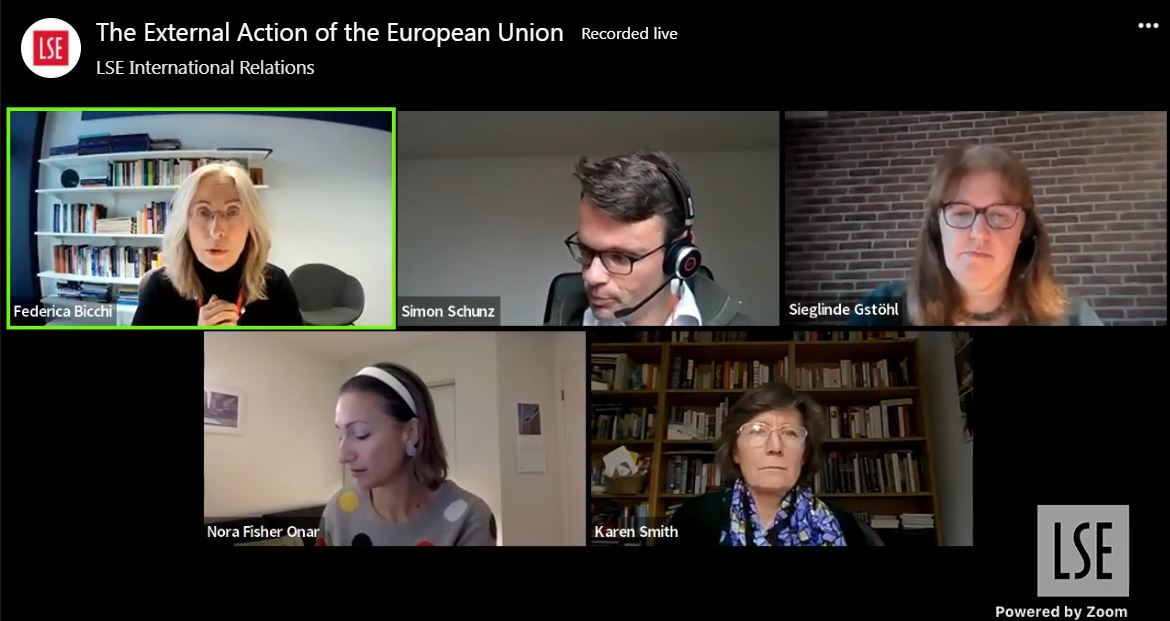On Tuesday 4 October 2022, Sophie Harman, Professor of International Politics, Queen Mary University of London, gave the Department of International Relations Fred Halliday Memorial Lecture 2022, and then discussed it with Dr Marsha Henry, Associate Professor in the Department of Gender Studies, LSE.

Things for women have meant to be getting better, according to Professor Harman. The Green Wave women’s movement in South America, U.N agencies dedicated to reproductive rights, and the increasing presence of female world leaders like Jacinda Ardern all pointed to the right direction. Yet, women and women’s labour continue to be exploited in global health.
Professor Harman spoke on the apparent inequality found within global health, despite women being at the forefront of global healthcare. She briefly touched on the recent overturning of the landmark ruling Roe v. Wade but urged the audience that the issue is deeper than this. Harman spoke about several abuse scandals in global health, notably the sexual abuse scandal in the DR Congo carried out by WHO staff during the Ebola outbreak. She also defined ‘health washing’, in which women’s health is hijacked as a diversionary tactic, using progress as a means of shutting down critiques. Just look at the cover of every health report, says Harman. What do these instances make clear? That women’s health is being hijacked for political means, economic growth, and for the protection of institutions. Women are simply the collateral damage.
..women’s health is being hijacked for political means, economic growth, and for the protection of institutions. Women are simply the collateral damage.
Harman urged for a change in understanding of global health. She emphasised that global health is “not just pandemics”, but also women’s health and preventable deaths. We must turn our attention to the necessary structures, initiatives and government required to achieve this.
Discussant Dr Henry asked why women’s health in general is subject to hijacking. She also enquired how we can opt out of the susceptibility of women and women’s health being used for tokenistic ends. Professor Harman urged that to simply “add in woman and stir” is insufficient in tackling this. Representation is not necessarily the issue at hand but rather the value and importance that women’s health is granted on the global scale. Not only does women’s health count but it matters, and particularly in the field of IR.
We must begin to centre women’s health in IR if we are to combat the global health issue of preventable deaths of women.
This public lecture promised to challenge us, to act as a “call to arms”, as coined by the Chair, Professor Callahan, and yet the message was nothing revolutionary but fundamental. We must begin to centre women’s health in IR if we are to combat the global health issue of preventable deaths of women. Why? Because it matters.
Event report by Julia George, MSc International Relations






